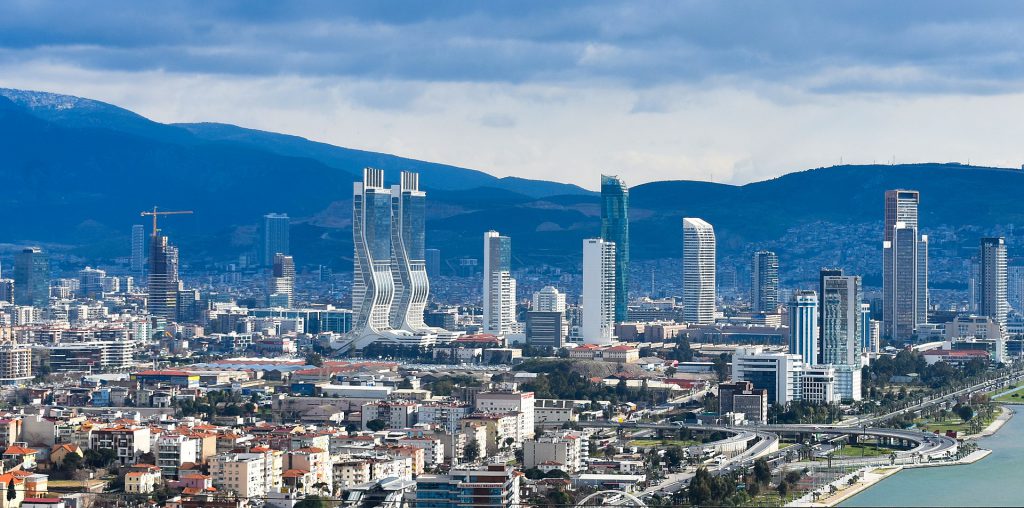Izmir (UK: /ˈɪzmɪər/ IZ-meer, US: /ɪzˈmɪər/ iz-MEER; Greek: Σμύρνη, Turkish: İzmir, Turkish pronunciation: [ˈizmiɾ]) is a metropolitan city in the western extremity of Anatolia, capital of the province of the same name. It is the third most populous city in Turkey, after Istanbul and Ankara and the second largest urban agglomeration on the Aegean Sea after Athens.
As of the last estimation, on 31 December 2019, the city of İzmir had a population of 2,965,900, while İzmir Province had a total population of 4,367,251. Its built-up (or metro) area was home to 3,209,179 inhabitants extending on 9 out of 11 urban districts (all but Urla and Guzelbahce not yet agglomerated) plus Menemen and Menderes largely conurbated. It extends along the outlying waters of the Gulf of İzmir and inland to the north across the Gediz River Delta; to the east along an alluvial plain created by several small streams; and to slightly more rugged terrain in the south.
İzmir has more than 3,000 years of recorded urban history, and up to 8,500 years of history as a human settlement since the Neolithic period. In classical antiquity the city was known as Smyrna (/ˈsmɜːrnə/ SMUR-nə; Greek: Σμύρνη, romanized: Smýrni/Smýrnē) – a name which remained in use in English and various other languages until around 1930, when government efforts led the original Greek name to be gradually phased out internationally in favor of its Turkish counterpart İzmir. Lying on an advantageous location at the head of a gulf running down in a deep indentation, midway along the western Anatolian coast, İzmir has been one of the principal mercantile cities of the Mediterranean Sea for much of its history. It hosted the Mediterranean Games in 1971 and the World University Games (Universiade) in 2005. The city participated in Climathon in 2019.
